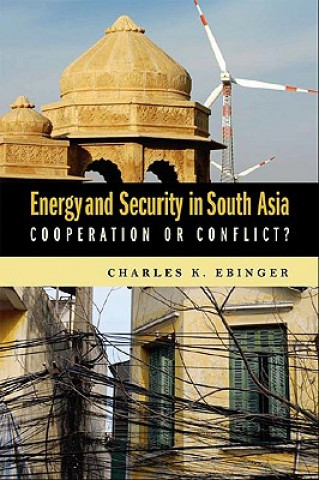
Kód: 04727232
Energy and Security in South Asia
Autor Charles K. Ebinger
Economic growth and burgeoning populations have put South Asia's energy security in a perilous state. Already energy and power shortages are stunting development in some of the region's least developed locations spurring political ... celý popis
- Jazyk:
 Angličtina
Angličtina - Vazba: Brožovaná
- Počet stran: 224
Nakladatelství: Brookings Institution, 2010
- Více informací o knize

Mohlo by se vám také líbit
-

Biofuels Production
6360 Kč -

High Acid Crudes
1638 Kč -

Earth Wars - The Battle for Global Resources
1079 Kč -

Carbon Utilization
4488 Kč
Dárkový poukaz: Radost zaručena
- Darujte poukaz v libovolné hodnotě a my se postaráme o zbytek.
- Poukaz se vztahuje na celou naši nabídku.
- Elektronický poukaz vytisknete z e-mailu a můžete ihned darovat.
- Platnost poukazu je 12 měsíců od data vystavení.
Více informací o knize Energy and Security in South Asia
Nákupem získáte 103 bodů
 Anotace knihy
Anotace knihy
Economic growth and burgeoning populations have put South Asia's energy security in a perilous state. Already energy and power shortages are stunting development in some of the region's least developed locations spurring political insurgences and social dislocation. Should this trend continue, Ebinger argues the Subcontinent will face dire economic, social and political crises. In "Energy and Security in South Asia", Brookings ESI director Charles Ebinger, a long-time adviser to South Asian governments, lays out the current regional energy picture arguing that the only way to achieve sustainable energy security is through regional collaboration both within the subcontinent as well as with regional neighbors in the Middle East and Central and Southeast Asia, Dr. Ebinger commences by illustrating the present-day energy environment in each nation as well as the obstacles governments confront in addressing them. Among the issues examined are: the technical strains that near double-digit economic growth are putting on India's dilapidated power infrastructure; the economic costs the country is incurring by increasing reliance on the Middle East for oil and gas resources; the prospects for expanded wind, solar, energy efficiency and nuclear power generation in India to help reduce the nation's growing carbon footprint as it accelerates the use of coal; the implications of Pakistan's expanded use of coal; an analysis of how poor energy pricing systems are bringing about an energy shortage throughout the region; an examination of how strains in Indo/Bengali relations threaten the construction of vital regional energy infrastructure projects; a discussion of how continued political upheaval in Nepal is causing power shortages of up to 20 hours per day; and, an analysis of how hydropower development is fuelling Bhutan's 'Gross National Happiness' campaign. In addition to individual domestic concerns, each nation shares a crisis whereby hundreds of millions on the Subcontinent lack access to electricity and burn inefficient resources such as fuel wood and biomass for lighting, heating, and cooking, thus contributing sizeable carbon emissions. Ebinger then details the need for regional energy cooperation, both within and outside the Subcontinent. Regarding intra-regional collaboration, Nepal, Bhutan, and Bangladesh all have an unrealized opportunity for generating income by exporting their vast hydropower resources to a power-starved India. In addition, Bangladesh and India are yet to come to agreements on gas trade and other vital bilateral energy projects. Outside the subcontinent, a plethora of pipelines have been proposed to ease the Subcontinent's fossil fuel resource thirst. Ebinger examines the Iran-Pakistan-India pipeline, Turkmenistan-Afghanistan-Pakistan-India pipeline, Oman-India subsea pipeline, and the Myanmar-Bangladesh-India pipeline arguing that all these projects offer promises for energy security; however, each has been plagued with political, economic, or security obstacles that have prevented tangible progress. In that light, the third section highlights the geopolitical concerns facing the region's energy security, from the Pakistan-India relationship - and how it relates to energy security, and the developing India-China rivalry for foreign energy resources. China, seen as a competitor to India for Asian economic preeminence, is facing its own energy resource glut. The looming Indian Subcontinent energy crisis will force more than half a billion people - and counting - from emerging from dire poverty, thus potentially sparking domestic and regional instability in an already treacherous area.
 Parametry knihy
Parametry knihy
Zařazení knihy Knihy v angličtině Economics, finance, business & management Industry & industrial studies Energy industries & utilities
1034 Kč
- Plný název: Energy and Security in South Asia
- Podnázev: Cooperation or Conflict?
- Autor: Charles K. Ebinger
- Jazyk:
 Angličtina
Angličtina - Vazba: Brožovaná
- Počet stran: 224
- EAN: 9780815704119
- ISBN: 0815704119
- ID: 04727232
- Nakladatelství: Brookings Institution
- Hmotnost: 356 g
- Rozměry: 229 × 152 × 16 mm
- Datum vydání: 01. August 2010
Oblíbené z jiného soudku
-

Smartest Guys in the Room
357 Kč -

Oil 101
924 Kč -

Nuclear Power: A Very Short Introduction
250 Kč -

Don't Tell Mum I Work on the Rigs
302 Kč -

Trillion Dollar Baby
566 Kč -

Natural Gas - Fuel for the 21st Century
955 Kč -

Moral Case For Fossil Fuels
571 Kč -

Oil
276 Kč -

Private Empire
464 Kč -

Pellet Handbook
6712 Kč -

Energy Imperative
1427 Kč -

Crude World: The Violent Twilight of Oil
494 Kč -

English for the Energy Industries
738 Kč -
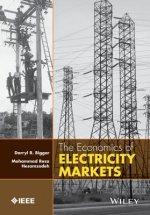
Economics of Electricity Markets
4030 Kč -
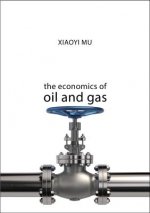
Economics of Oil and Gas
813 Kč -

Power from Pellets
3313 Kč -

Real-time Monitoring and Operational Control of Drinking-Water Systems
5255 Kč -

Caspian Energy Politics
1900 Kč -

Rigged
357 Kč -

Crude Volatility
1090 Kč -

Transitions to Alternative Vehicles and Fuels
1804 Kč -

Politics and Oil in Kazakhstan
1666 Kč -

This Is Not A Drill
312 Kč -

European Natural Gas Demand, Supply, and Pricing
2549 Kč -

Our Renewable Future
691 Kč -

All the Money in the World
287 Kč -

OPEC Behaviour and World Oil Prices
1430 Kč -

Applied Photovoltaics
1927 Kč -
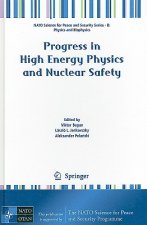
Progress in High Energy Physics and Nuclear Safety
5094 Kč -

Urban Storm Water Management
5564 Kč -

Water Footprint Assessment Manual
5181 Kč -

Smart Power Anniversary Edition
797 Kč -

Principles of Electric Machines with Power Electronic Applications 2e
5306 Kč -

Nuclear Energy
428 Kč -

Fundamentals of Industrial Heat Exchangers
4953 Kč -

Solar Economy
1310 Kč -

America's Kingdom
850 Kč -

Thermo-ecology
4031 Kč -

Energy Economics
3017 Kč -

Secret World of Oil
850 Kč -
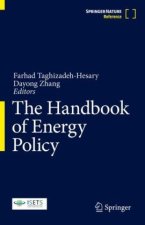
The Handbook of Energy Policy
14912 Kč -

Renewable Energy Finance: Funding The Future Of Energy
1821 Kč -

Energy Storage
5564 Kč -

Superphenix
5985 Kč -

Introduction to Oil and Gas Operational Safety
4033 Kč -

Red Gas
4204 Kč -

Coal
21039 Kč -

Power System Operations and Electricity Markets
4949 Kč -

Building Energy Management Systems and Techniques
3770 Kč
Osobní odběr Praha, Brno a 12903 dalších
Copyright ©2008-24 nejlevnejsi-knihy.cz Všechna práva vyhrazenaSoukromíCookies



 Vrácení do měsíce
Vrácení do měsíce 571 999 099 (8-15.30h)
571 999 099 (8-15.30h)